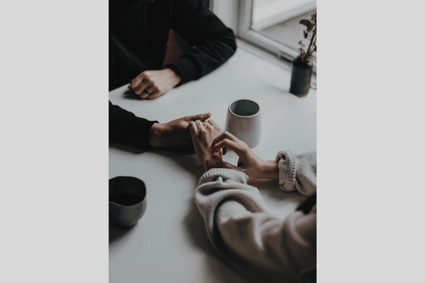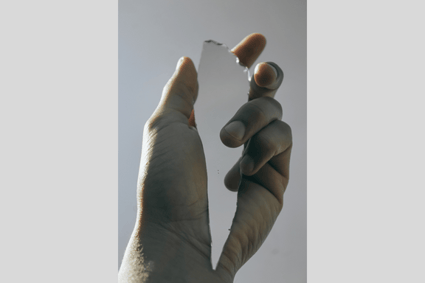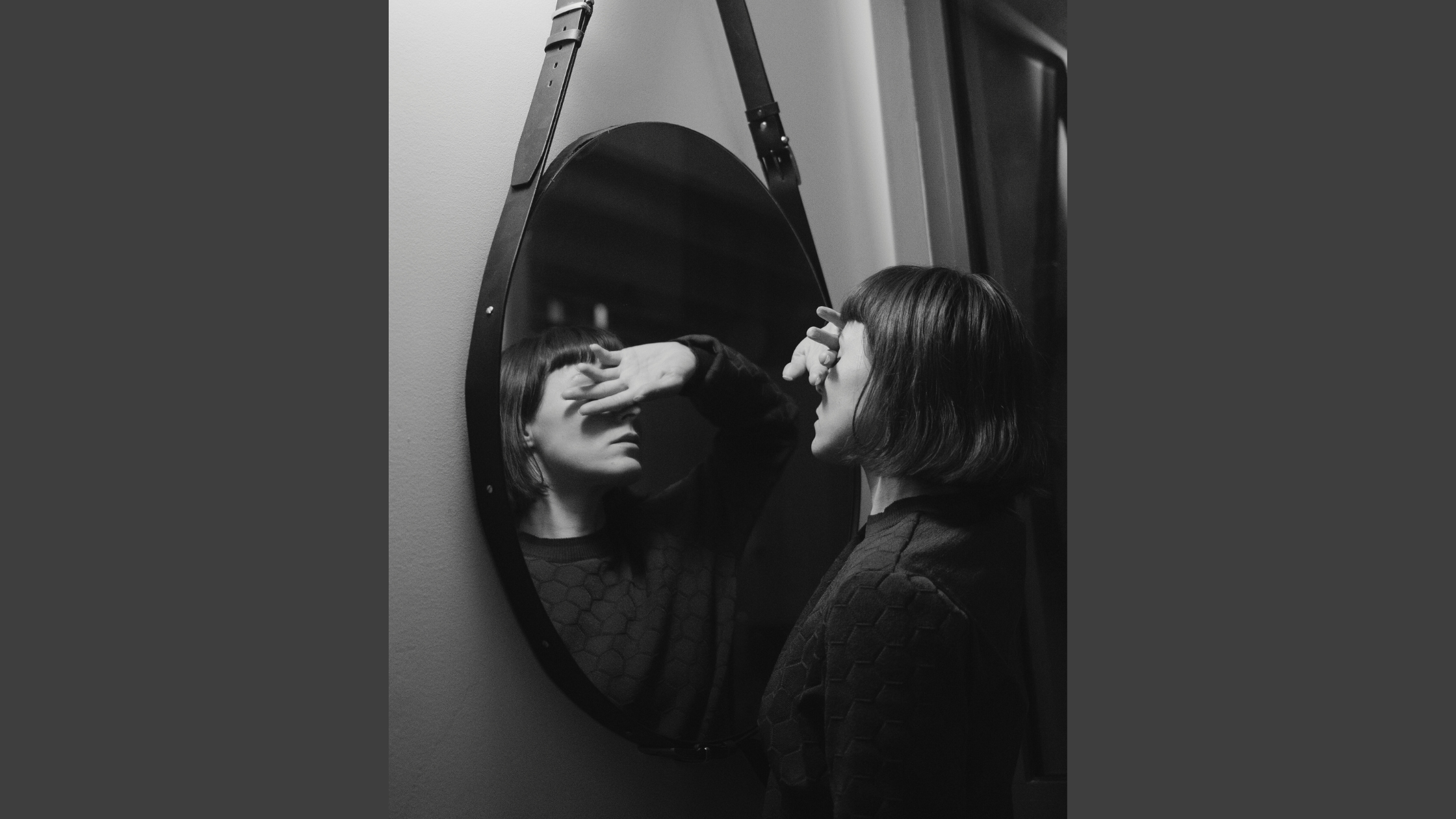Mirror, Mirror...Becoming Brave Enough to See Ourselves
Are you a mirror looker or a mirror avoider? I have found I am prone to avoiding mirrors. Mirrors that would help me see myself better and give me a picture of what needs to change are the ones I want to avoid the most.
The problem with mirrors is sometimes I don't really like what I see. For instance, there was the day a couple of years ago when I casually walked through my bathroom, glanced in the mirror and did a double take when I saw a face that looked twenty years older staring back at me.
I grabbed my eye cream, berating myself for never using it and promptly called our then 13 year old son in to the bathroom. Tentatively I asked, "Do I look....um different today?" With a downcast expression he replied, "Yes, Mom. You do. I've been feeling sad because I was thinking I must not look at you often and you are getting older. A lot older." I then called our older teen daughter in and repeated my question. Her eyes widened, "MOM! You look like twenty years older. You aged overnight!" I then sent a picture to John and texted, "Do I look different today?" His prompt reply was, "What filter is that?"
The rest of the day, whenever I passed a mirror I would give my reflection a side-eye glance. I felt normal and fine, but when I was faced with my reflection, I knew things were not okay or fine. My solution? Avoid the mirrors and all was well - except for the strange looks I got from my family. What I didn't know was this was the onset of idiopathic angiodema and my face would drastically swell overnight and over the next few days. I have come to the conclusion that 'ideopathic' is just a fancy word that means the doctors really have no idea. For a few weeks after, I would take a deep breath before looking in a mirror and sigh with relief when the face I expected to see was staring back at me.
We do this in our relational life too. We often assume we look much better than we do in relationships. I am learning to look in the mirror, but it is very difficult. Just last week I felt God ask me if I would be a mirror looker or a mirror avoider.
Relationships are mirrors in our lives and I am convinced that a lot of relational trouble comes from our inability and unwillingness to see ourselves through the lens of others. I don't think there is one of us who desires to have bad relationships with those around us. I doubt there is one family who thinks, "I really wish there were more elephants in this room" and "I really hope to have distant relationships with those I love." I assume the desire for good, safe, connected, whole, honest and healthy relationships is universal. Most of the pain in the world is relational pain.

Christian psychiatrist, Curt Thompson says, "The biggest predictor of a healthy family is not perfection, but the ability to repair." I carry this phrase around in my mind daily. Mirrors can help us repair what is wrong. The desire for perfection destroys our ability to look in the mirror because mirrors always reveal our imperfections. Our desire to be the perfect parent, the perfect spouse, the perfect daughter/son, the perfect friend, the perfect sibling, the perfect worker, the perfect boss or the perfect anything is the very thing that will be the demise of the relationships we want. If we can't face the places in us where we fall short with others, we will never repair those places. Repair; not perfection... Not one of us can be perfect, but all of us can learn to repair (at least from our side).
Just because someone is making us feel less than good about ourselves does not mean we should push them away or 'stand up for ourselves.' Usually the feedback we receive is necessary for us to grow. Often the feedback we receive is right. Most of the time, the feedback we receive won't be neatly packaged. This is especially true if there is a backlog of hurt and patterns in the relationship that have been ongoing. This is true in family relationships where our children are learning to communicate. Let's be honest though, MOST of us are learning to communicate - not just children. We trip and stumble around each other in this life we are in. The best gifts we can give each other are grace, humility and a willingness to look in the mirror.
Mirrors are not always words of another confronting us. Sometimes mirrors come to us by way of behaviors. We can tell something is wrong by the way another is reacting to us, attitudes, aloofness and distance. All of these should alert us that there may be a repair to be made.
It took an embarrassingly long time for me to begin to notice that some of the relational issues I was having with my husband and our growing kids pointed back to me. As far as I could see, I was doing nothing wrong. The problem is, we usually can't see our own selves very well. My response to mirrors or someone trying to confront me was hurting my relationships. It wasn't at all out of the ordinary for me to become very defensive or very shame-filled. I would often take the mirror and turn it around back to the other, discard or disregard it. The fancy name for it is self-protectiveness. The less popular name is pride.

My kids would sometimes come to me in an attacking sort of way (as growing kids sometimes do) and thoughts would fill my mind, "I am doing the best I can. How could they think this? They misunderstood me and my intentions. If only they knew what I was trying to do. If only they knew my inner struggle." I would not say these things, but I'm sure this attitude came out in my responses.
Some of these things can be true, but by taking this stance in my mind, it blocked me from seeing needs they have and ways I needed to grow as a mom. These words were also defensive and missing any element of seeing a need for change in me. Honestly, it's selfish. The focus was me. I would like to say this only happened when they came in unkind ways, but often when they would come in more gentle ways, my response still wasn't good. I would spiral into shame and make excuses. The focus once again was me. This is fight and flight at its finest. Neither invite honest communication or result in a healthy look in the mirror.
Let's be honest, most of us don't respond or act badly on purpose. We usually have a collection of things we carry that make up the automatic responses to life we have, but this doesn't make them any less destructive. Our intentions don't determine outcomes.
The defensiveness and pushing away of mirrors showed up in my relationship with John too. Although my desire is and always has been for great communication, when I can't look in the mirror, I block the very thing I desire. The pattern typically was when John brought something up, I would fight or take flight. I would begin to think about and voice all of the times he did that too or maybe ways he was misunderstanding me. Every defense in me would rise to the surface and take on different forms like being over-assertive, retreating, silence, sulking and becoming a victim. If John got extra quiet, he would get the same response. When this happened, guess how much this made him want to be honest with me? Not much. Do you see a problem here?

When we can only tolerate good feedback, this leaves the other in the relationship to decide, 'Is honesty worth it?' and sometimes they understandably conclude it's not. Sometimes they learn how to act like everything is fine even if it is not. If people are not honest with us, there is probably a reason.
But I am learning. Learning imperfectly. I am learning to love the one holding the mirror more than loving and protecting myself. It's really hard because a lifetime of automatic responses doesn't die easily. It feels weird, raw and vulnerable. Sometimes I would rather fight or take flight in the short run, but then I remember what I really want. I want relationship. Negative feedback rarely feels good, but it is necessary for relationship. I have decided I want relationship more.
When we refuse to look in the mirror another is holding, our responses become all about protecting ourselves and nothing about the one holding the mirror or we attack the one holding the mirror. None of our self-protective responses will deepen our relationships and all of these responses will harm those closest to us. These responses in us will steal the very things most of us long for - deep and open relationships with our family and those in our community.
It's taking time and growth to begin to see mirrors as a gift. Mirrors are a gift to the relationships we hold close to us. They are a gift of bravery from the ones willing to hold the mirror up and say, "We have a problem here."
I am learning to honor the one holding the mirror. "Thank you for being brave enough to share that with me. I am sorry that is how I have been making you feel. I am sorry. Please tell me if I keep doing this. I see what you are saying." Sometimes it's stating what my intentions were and acknowledging how my actions have fallen short, realizing that actions matter much more than intentions. I am learning to put myself in the shoes of the other and when I stop long enough to do that, I see their vulnerability in holding up a mirror and am truly grateful they love me enough to do it. I want to be a safe space.

Some of the mirrors may be a bit distorted and probably will be. None of us can see each other very clearly. Only God can do that because He can see to the very depths of each of our hearts. When a mirror is held up, we have a good God who has promised us wisdom if we ask. We can be assured that He will point out the things in our life that are harming us and others because He is a restoring God. In my experience, God will often re-iterate what was said, remind me I am His and teach me how to respond differently. Rarely will I find I was not part of the problem.
Here is what I am slowly learning. When someone is showing us a mirror, even in a hurtful way, it is a bid for closeness. They are hoping we will see the thing in us that is hurting them. Most likely, they are hoping for the very same things we are in the relationship. Closeness and depth. If we make a habit of turning mirrors away, dismissing them, acting like a victim or become angry with the one showing us the mirror, eventually they may put the mirror away and quit trying and we will both lose. If we make a habit of taking the mirror and trying to notice what the other is saying, our relationships will grow deeper and become more and more honest. The kindest thing we can do for another holding up a mirror through words or behavior is to take a look.
We never take our identity from the mirrors, but we should be willing to see our behavior. The mirrors are about what we do and how we are behaving; not about who we are. As God has been making me more secure in who I am in Him, helping me see the true beauty of the Cross and depth of forgiveness and restoration available to me, showing me more deeply the offer He has given to not just help me live my life but live my moments, I am finding I am more able to look in the mirrors others are holding up. The ability to look in the mirror is connected to our rootedness in God. As we become more rooted in Him, he gives us the courage to look and see things as they actually are. We shouldn't be surprised by our imperfections. Instead, they just remind us all the more that we really do desperately need Him. In Him, there is no shame - only forgiveness and restoration.
We're all learning. We're learning how to look and we're learning how to hold up the mirrors to others in a loving way. All healthy relationships require mirrors. The question is not if there will be mirrors in our lives, but what will we do with them? How will we treat the one showing us a mirror? When we are dismayed by what we see, instead of denial, shame or blame, can we go to the One who only reveals to heal?



.jpg)
.jpg)